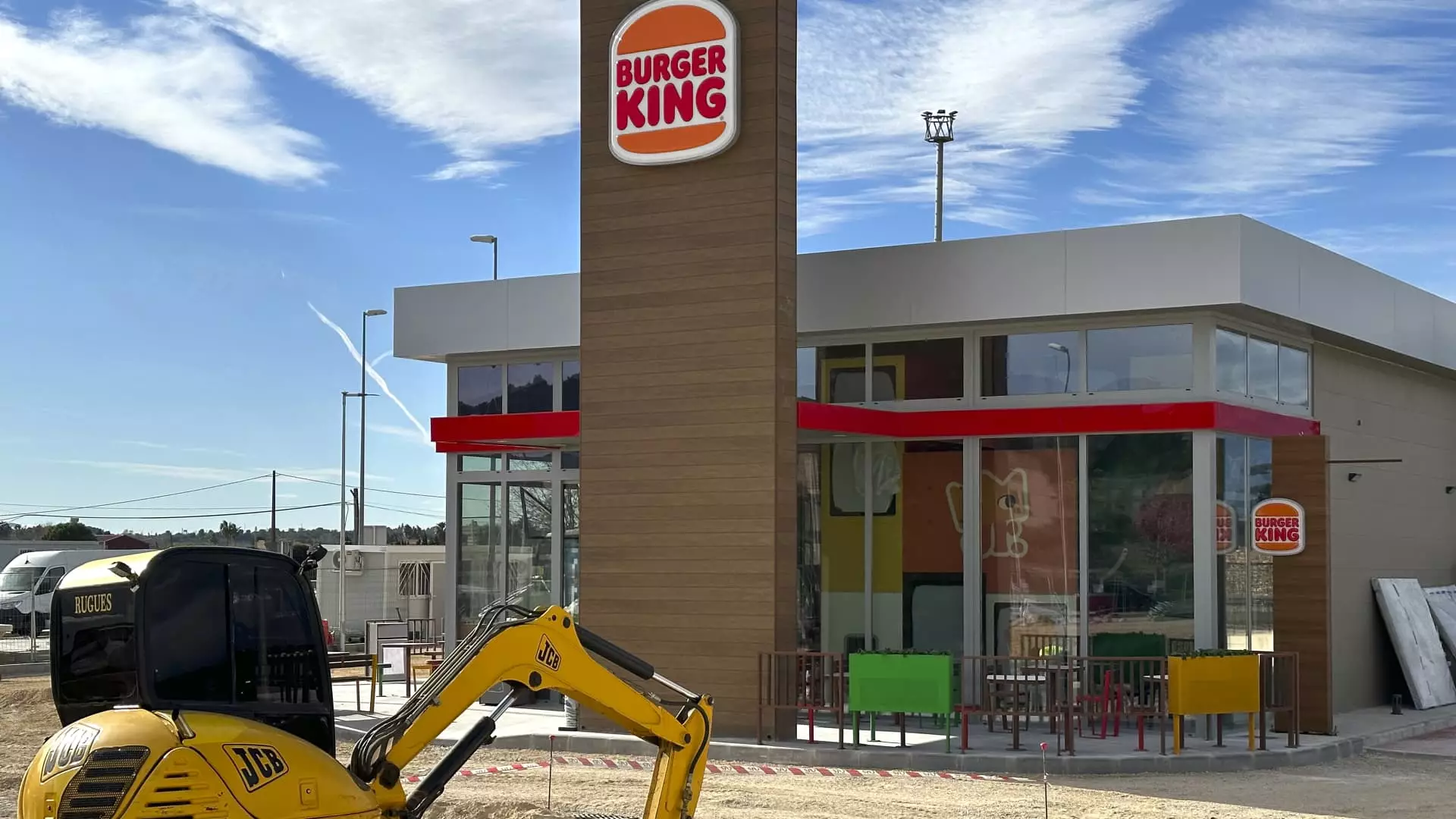Restaurant Brands International (RBI), the parent company of famous fast-food chains like Tim Hortons, Popeyes, Burger King, and Firehouse Subs, recently released its quarterly earnings report. Despite some optimistic indicators in consumer sentiment, the overall results fell short of expectations, highlighting the challenges that the company continues to navigate in a fluctuating market. As consumer spending on dining experiences becomes increasingly selective, RBI’s performance highlights the need for adaptive strategies and robust marketing efforts to attract diners.
Disappointing Earnings and Missed Expectations
In its latest third-quarter earnings report, RBI revealed earnings per share of 93 cents, slightly below the anticipated 95 cents, while revenues totaled $2.29 billion compared to the projected $2.31 billion. Such discrepancies sparked a decline in the company’s stock by approximately 2% in early trading following the results. A major contributor to these misses was the lackluster same-store sales growth, which stood at just 0.3% worldwide—well below analysts’ optimistic forecasts.
Particularly concerning was the performance of Burger King, Firehouse Subs, and Popeyes, all of which reported declines in same-store sales in their U.S. markets. As consumer behavior shifts and spending patterns become hampered, these chains face increasing competition in an already saturated market.
While the third quarter presented several setbacks, RBI’s CEO Josh Kobza noted some encouraging signals emerging in the current quarter. Early reports from October indicate a positive trend in same-store sales, which have improved to low single digits. This uplift is attributed to enhanced marketing strategies and a more favorable consumer climate, driven in part by decreasing gas prices and moderating inflation.
Kobza emphasized that factors such as interest rates also have a role in improving consumer sentiment. While it remains to be seen whether these positive trends can be sustained over the long term, the initial indicators do offer hope for the struggling fast-food giant.
Brand-Specific Challenges and Market Dynamics
Diving deeper into individual performances, Burger King reported a 0.7% decline in same-store sales, a figure that surprised analysts who had expected stability. Entering a critical phase of a turnaround strategy, the chain is contending with a broader trend of declining discretionary spending among consumers, causing it to re-engage in fierce price competition with rivals.
Popeyes, another brand that faced challenges, saw a notable 4% dip in same-store sales, starkly contrasting the projected minimal gain. Despite attempts to prioritize value offerings—such as the reintroduction of promotional deals—the brand struggles to attract sufficient foot traffic. The continuing battle for customer attention underscores the need for innovative marketing and product differentiation.
In juxtaposition, Firehouse Subs, which remains the smallest brand within RBI with just over 1,300 locations, faced a substantial same-store sales drop of 4.8%, well below estimates. This decline points towards a need for the brand to leverage unique customer value propositions to drive patronage amid an increasingly competitive landscape.
On a positive note, Tim Hortons emerged as a beacon of growth for RBI, demonstrating a domestic same-store sales increase of 2.3%. Yet even this performance fell short of the Wall Street prediction of 4.1%. However, the Canadian coffee chain is focused on enhancing customer experience, evident through improved service speed, indicating its commitment to adapt and thrive amid challenges.
Moreover, on an international scale, RBI’s same-store sales grew by 1.8% outside of the U.S. and Canada, which, while below expectations, signifies a gradual expansion in markets that hold future potential for revenue.
As RBI sets its sights towards the full-year outlook, it has trimmed its system-wide sales growth expectations from 5.5% to a revised range of 5% to 5.5%. This adjustment highlights the company’s recognition of an evolving marketplace and the unpredictability inherent in consumer behavior.
While Restaurant Brands International experiences early signs of recovery, it must remain vigilant in adapting its business strategies, embracing innovative marketing campaigns, and differentiating its offerings to compete effectively in a dynamic landscape where consumer preferences are continuously evolving. The journey ahead entails not just addressing current shortfalls, but also capitalizing on emerging opportunities to ensure long-term sustainability and growth.

Leave a Reply